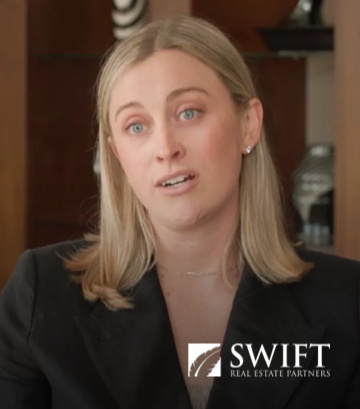NEW YORK — February 22, 2023 — The winter months are typically a slow, stable time of year for the office leasing market, and 2023 kicked-off maintaining its seasonal track. According to the latest VTS Office Demand Index (VODI) analysis, new demand for office space in January was flat month-over month, maintaining a VODI level of 46. This is in line with previous January reports. Office demand tends to exhibit an uptick in the months of spring, and we anticipate this year will be similar to past ones in this respect. The VODI tracks unique new tenant tour requirements, both in-person and virtual, of office properties in core U.S. markets, and is the earliest available indicator of upcoming office leasing activity as well as the only commercial real estate index to explicitly track new tenant demand.
Nationally, the VODI remained 20.7 percent below its level a year ago. It has, however, continued to recover from COVID-19 impacts. According to VTS’ analysis, demand for new office space has recovered 35.7 percent - about one third - of its initial decline at the onset of the pandemic, and is just under half of the 2018-2019 average.
“While January was a relatively quiet month both nationally and locally, it’s encouraging to see some momentum in a return to on-site vs. remote work for companies across the country,” said Nick Romito, CEO of VTS. “January is generally a time for companies to reevaluate strategies before ramping up in February and March. It will be interesting to see if momentum continues to build for more on-site work and for the leasing market.”
Locally, all cities tracked by the VODI declined year-over-year, with the largest declines reported in San Francisco, whose VODI fell 37.8 percent year-over-year, followed by Seattle and Chicago whose VODIs fell 30.3 and 29.9 percent year-over-year, respectively. The smallest decline was in Boston, whose VODI fell 10.5 percent from a year ago, followed by New York City and Washington, D.C., both of which declined 11.9 percent compared to this time last year.
New York City and Los Angeles’ demand for new office space are the farthest along on the road to recovery, while San Francisco is at the opposite end of the spectrum. New York City has regained almost 50 percent of its initial pandemic decline and Los Angeles 40 percent of its decline; San Francisco has only recovered 25 percent. Contributing to San Francisco’s slower recovery is likely due in part to its tech industry-dominated economy. That sector has historically been more remote-friendly, even prior to the pandemic. New York City, while it has a formidable tech sector, has a strong presence of more traditional sectors that favor on-site work.
“Alongside the VODI, job postings offer a valuable glimpse into what office demand may do in the future,” said Ryan Masiello, Chief Strategy Officer of VTS. “Differences in job posting trends help explain greater annual VODI declines in San Francisco and Seattle - cities that are heavily dominated by the more remote-friendly tech industries. New York City, on the other hand, has a greater mix of traditional industries that tend to prefer on-site work.”
VTS Office Demand Index (VODI)
| National | BOS | CHI | L.A. | N.Y.C. | S.F. | SEA | D.C. | |
| Current VODI (January) | 46 | 34 | 47 | 49 | 52 | 28 | 46 | 52 |
| Month-over-Month VODI Change (%) | 0.0 | 21.4% | -6.0% | 4.3% | -3.7% | -9.7% | 17.9% | -8.8% |
| Month-over-Month VODI Change (pts.) | 0 | +6 | -3 | 2 | -2 | -3 | +7 | -5 |
| Quarter-over-Quarter VODI Change (%) | -11.5 | 30.8% | -7.8% | -25.8% | -14.8% | -6.7% | 31.4% | -30.7% |
| Quarter-over-Quarter VODI Change (pts.) | -6 | 8 | -4 | -17 | -9 | -2 | 11 | -23 |
| Year-over-Year VODI Change (%) | -20.7% | -10.5% | -29.9% | -19.7% | -11.9% | -37.8% | -30.3% | -11.9% |
| Year-over-Year VODI Change | -12 | -4 | -20 | -12 | -7 | -17 | -20 | -7 |
ABOUT VTS
VTS is the commercial real estate industry’s leading technology platform that transforms how strategic decisions are made and executed across the asset lifecycle. In 2013, VTS revolutionized the commercial real estate industry’s leasing operations with what is now VTS Lease. Today, the VTS Platform is the largest first-party data source in the industry and delivers data insights and solutions for everyone in commercial real estate to fuel their investment and asset strategy, leasing and marketing automation, property operations, and tenant experience.
With the VTS Platform, consisting of VTS Lease, VTS Rise, VTS Data, and VTS Market, every business stakeholder in commercial real estate is given the real-time market information and executional capabilities to do their job with unparalleled speed and intelligence. VTS is the global leader with more than 60% of Class A office space in the U.S., and 12 billion square feet of office, retail, and industrial space is managed through our platform globally. VTS’ user base includes over 45,000 CRE professionals and industry-leading customers such as Blackstone, Brookfield Properties, LaSalle Investment Management, Hines, BXP, Oxford Properties, JLL, and CBRE. To learn more about VTS, and to see our open roles, visit www.vts.com.
Back To News And Press ReleasesVTS Resources
Customer Success Stories
Hear the most proactive, forward-thinking executives who use commercial real estate software to increase their ROI speak about their partnership with VTS.

VTS Blog
Dive into our library of industry insights, Q&As, and more.